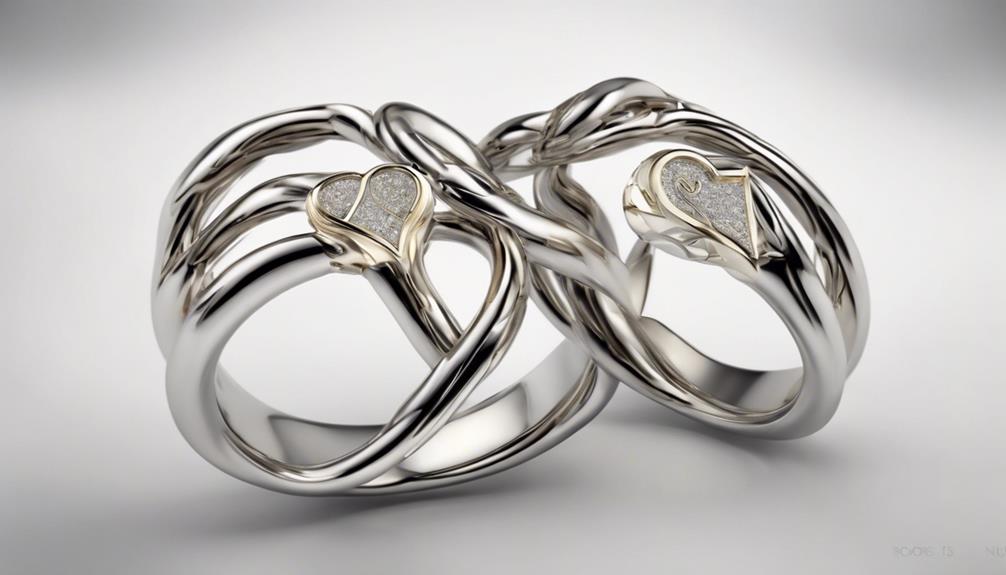Let’s explore the subtle differences between ethical non-monogamy and open relationships.
While both share the premise of consensual non-monogamy, they diverge in their approach to emotional involvement and physical connections.
Understanding these differences can shed light on how individuals navigate multiple relationships while upholding respect and honesty.
Key Takeaways
- Ethical non-monogamy emphasizes emotional connections and commitment.
- Open relationships prioritize sexual freedom and exploration.
- Both require clear communication and established boundaries.
- Ethical non-monogamy nurtures emotional connections alongside physical intimacy.
Types of Ethical Non-Monogamy
In exploring the realm of ethical non-monogamy, various relationship styles emerge, each emphasizing open communication and mutual consent. Among these forms, polyamory stands out for its focus on loving multiple partners simultaneously, placing importance on deep emotional connections rather than solely sexual interactions. In polyamorous relationships, individuals may have multiple romantic partners, navigating complex dynamics with transparency and honesty. This form of ethical non-monogamy requires a high level of communication and understanding among all involved parties to ensure that everyone's needs and boundaries are respected.
On the other hand, open relationships offer a different approach, allowing partners to engage in sexual encounters outside the primary relationship while maintaining mutual agreement. Unlike polyamory, open relationships may prioritize sexual exploration and variety over emotional connections with additional partners. Clear communication about desires, boundaries, and expectations is crucial in open relationships to prevent misunderstandings and ensure the well-being of all partners involved. Each of these relationship types within ethical non-monogamy offers unique opportunities for individuals to explore different facets of intimacy and connection, ultimately promoting growth and fulfillment in diverse ways.
Ethical Non-Monogamy Vs. Open Relationships

Comparatively, ethical non-monogamy and open relationships differ in their emphasis on emotional connections and sexual exploration, respectively. Ethical non-monogamy, which includes polyamorous relationships, prioritizes consent, honesty, and respect among all parties involved. It may involve engaging in romantic relationships with multiple partners while maintaining open communication and clear boundaries.
On the other hand, open relationships focus more on consensual non-monogamy in the context of sexual encounters outside the primary partnership. While both relationship styles require communication and mutual understanding, ethical non-monogamy places a stronger emphasis on building emotional connections with multiple partners, not solely centered on sexual interactions.
Understanding the distinctions between these relationship dynamics is crucial for establishing healthy and fulfilling connections based on trust, respect, and shared values. By navigating the complexities of ethical non-monogamy and open relationships with empathy and open communication, individuals can create sustainable and loving connections that honor everyone involved.
Defining Ethical Non-Monogamy
Engaging in ethical non-monogamy involves fostering honest and consensual romantic or sexual relationships with multiple partners, prioritizing communication and mutual respect. In ethical non-monogamous relationships, individuals navigate complex dynamics with care and consideration for all involved.
Here are some key aspects of defining ethical non-monogamy:
- Consent: Prioritizing consent means all parties involved willingly agree to the relationship structure.
- Communication: Open and honest communication is crucial to ensure everyone's needs and boundaries are respected.
- Respect: Mutual respect among partners is fundamental to maintaining healthy and fulfilling relationships.
- Polyamorous: Some ethical non-monogamous relationships involve individuals having multiple romantic relationships simultaneously.
- Couple: In some cases, a couple may choose to explore ethical non-monogamy together, inviting others into their relationship dynamic.
Understanding these foundational principles can help individuals navigate the complexities of ethical non-monogamous relationships with empathy and awareness.
Key Differences and Similarities

When exploring the nuances between ethical non-monogamy and open relationships, one can discern key distinctions in the emphasis on emotional connections and commitment levels.
Ethical non-monogamy, in its various forms like polyamory and polyfidelity, places a strong focus on emotional connections and romantic involvement. It delves into establishing deep, meaningful relationships with multiple partners based on mutual consent and clear communication.
On the other hand, open relationships typically prioritize sexual freedom and exploration, allowing for encounters outside the primary partnership. The difference lies in the depth of emotional involvement and the level of commitment each form entails.
Both relationship styles necessitate clear communication and established boundaries to ensure the comfort and understanding of all parties involved. While ethical non-monogamy nurtures emotional connections alongside physical intimacy, open relationships are one form of consensual non-monogamy that leans more towards sexual encounters while maintaining transparency and respect within the established boundaries.
Choosing the Right Relationship Style
To make an informed decision on the right relationship style for you, it's crucial to understand the nuances between ethical non-monogamy and open relationships. When considering these options, it's essential to reflect on your personal values, communication style, and emotional needs.
Here are some key factors to help you choose the relationship style that aligns with your desires:
- Consent: Ethical non-monogamy prioritizes clear and enthusiastic consent from all parties involved.
- Honesty: Both ethical non-monogamy and open relationships require transparency and honesty to maintain trust.
- Mutual Respect: Respecting each individual's feelings, boundaries, and autonomy is fundamental in both relationship styles.
- Boundaries: Establishing and respecting boundaries is crucial for creating a healthy and sustainable relationship dynamic.
- Communication: Open and honest communication is vital in navigating the complexities of ethical non-monogamy and open relationships.
Frequently Asked Questions
Is Ethical Non-Monogamy the Same as an Open Relationship?
We understand the confusion between ethical non-monogamy and open relationships. In essence, while they both involve multiple partners, ethical non-monogamy goes beyond physical connections, encompassing emotional intimacy and love. Open relationships tend to focus more on sexual encounters.
It's crucial to recognize that ethical non-monogamy can include polyamory, unlike open relationships. Clear communication, consent, respect, and transparency are fundamental in both relationship structures.
What Are the Rules of an Open Relationship?
In an open relationship, clear communication about seeing others openly is crucial. Setting boundaries on outside connections is essential. Agreements can evolve based on comfort levels.
Honesty and transparency about external relationships are key. Respecting feelings while engaging in connections is crucial. These rules help maintain trust and ensure that everyone's needs and boundaries are respected in our relationship.
What's the Difference Between Poly and Enm?
When it comes to the difference between polyamory and ethical non-monogamy, it's essential to understand the nuances of each.
Polyamory involves loving multiple people without restrictions, while ethical non-monogamy focuses on exploring physical or romantic connections with mutual consent.
Both require clear communication, mutual respect, and understanding among all parties involved.
What Is the Meaning of Open Relationship?
When it comes to the meaning of an open relationship, it's like having a garden with different flowers blooming. We agree to let our hearts wander, nurturing connections beyond our own. Boundaries are set, agreements made, all while keeping communication and honesty in full bloom.
It's about exploring freedoms while cherishing our primary bond. The structure varies, tailored to our desires and needs, creating a unique garden of love and trust.
Conclusion
In conclusion, it's fascinating to see how ethical non-monogamy and open relationships offer unique dynamics and opportunities for those who embrace them. While some may see them as unconventional, they can actually foster deeper connections and personal growth.
So next time someone questions your relationship style, just remember that sometimes the most 'unconventional' paths lead to the most fulfilling experiences. Embrace the irony and enjoy the journey!
Augustus is the visionary leader and Editor-in-Chief of Personality-Test.net. With an unwavering commitment to quality and authenticity, he oversees all content, ensuring it enlightens and empowers our audience. Augustus believes deeply in the transformative power of self-awareness and is dedicated to making Personality-Test.net a beacon for those on a journey to understand themselves better.










